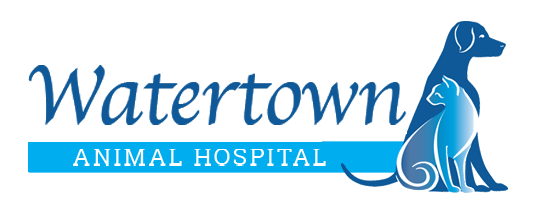Library
-
Orphaned kittens need extra care to compensate for the absence of their mother, and this article outlines the basics, including how and what to feed, how to monitor their weight, how to help them eliminate, and how to keep them safe from infection.
-
Orphaned puppies need extra care to compensate for the absence of their mother, and this article outlines the basics, including how and what to feed, how to monitor their weight, how to help them eliminate, and how to keep them safe from infection.
-
Birds need a proper balance of carbohydrates, proteins, fat, vitamins, minerals, and water. Poor nutrition is a common reason for many health problems in birds. Pellets are the ideal diet for birds and should ideally represent approximately 75%-80% of the bird's diet.
-
Poor nutrition is a common reason for many health problems in birds. Cockatoos are vulnerable to vitamin A deficiency, high cholesterol, atherosclerosis, stroke, insufficient dietary calcium, egg-binding, and other nutrition-related problems. Pellets are the ideal diet for birds and should ideally represent approximately 75%-80% of the bird's diet.
-
Birds need a proper balance of carbohydrates, proteins, fat, vitamins, minerals, and water. Poor nutrition is a common reason for many health problems in birds. Conures are vulnerable to vitamin A deficiency, insufficient dietary calcium, egg-binding, and other nutrition-related problems. The recommended diet for conures is pelleted food formulated for birds and should ideally represent approximately 75%-80% of the bird's diet.
-
Birds need a proper balance of carbohydrates, proteins, fat, vitamins, minerals, and water. Poor nutrition is a common reason for many health problems in birds. Lovebirds are vulnerable to vitamin A deficiency, insufficient dietary calcium, egg-binding, and other nutrition-related problems. Seeds are highly palatable and preferred by birds, but nutritionally they are incomplete. The recommended diet for lovebirds is pelleted food formulated for birds and should ideally represent approximately 75%-80% of the bird's diet.
-
Macaws are vulnerable to nutrition-related problems such as high cholesterol, atherosclerosis, stroke, vitamin A deficiency, insufficient dietary calcium, egg-binding. Pellets are the ideal diet and should ideally represent approximately 75%-80% of the bird's diet.
-
Mynah birds eat a variety of foods and have relatively short digestive tracts when compared with other parrots. Mynah birds are naturally omnivorous, eating a variety of fruits, insects, larvae, amphibians, lizards, small snakes, eggs, baby birds, and baby rodents. Mynah birds are very sensitive to iron levels in their food, therefore, they should be offered a pelleted food that is low in iron.
-
All snakes are carnivores. Some eat warm-blooded prey (rodents, rabbits, birds), while others eat insects, amphibians, eggs, other reptiles, fish, earthworms, or slugs. Live prey should not be fed to snakes. Snakes can be offered thawed, previously frozen prey, or freshly killed prey. Smaller or younger snakes usually eat twice each week, while larger, more mature snakes typically eat once every week or two.
-
Pigeons and doves are a diverse group of birds, but they share some clinically significant anatomy and physiology, including a large, bilobed crop or ingluvies, and crop milk production. Poor nutrition is a common reason for many health problems in birds. Bone structure, feather condition, and health of the liver, heart, and kidneys all depend on how well your birds are fed, so it is essential you know their proper diet.

